

Published on: 07/01/2025
This news was posted by Oregon Today News
Description

The East Fork Lewis River is known as a “gene bank” for wild steelhead and is a popular location for fly fishing and kayaking. It pours out of the Gifford Pinchot National Forest on its way to the Columbia River. But at a point roughly between the towns of Ridgefield and Battle Ground, the river slows to a crawl as the water flows through the sieve of a former gravel mine.
That three-mile length of the East Fork Lewis River is now on its way to recovery, despite concerns about future environmental restoration funding.
Known as the Ridgefield Pits, the former mine constrains the river due to massive holes dug into the landscape. In 1996, the largest flood in the river’s history breached the barrier between the river and the mine, dramatically changing its flow.
Chinook, coho, chum salmon and two runs of steelhead — all of which have Endangered Species Act protection — swim through these lazy pools. Those bathtubs of warm water filled with predatory pikeminnow and bass have replaced what used to be a cold, rushing river with logs for fish to hide under.
“Now you’re flowing through these big, dead ponds essentially,” said Paul Kolp, with the Lower Columbia Estuary Partnership, a science and education nonprofit focused on the section of Columbia River from Bonneville dam to the Pacific Ocean.
The East Fork Lewis River restoration project broke ground in April and is trying to change the conditions at the Ridgefield Pits. It’s a decade in the making with a $23.5 million price tag.
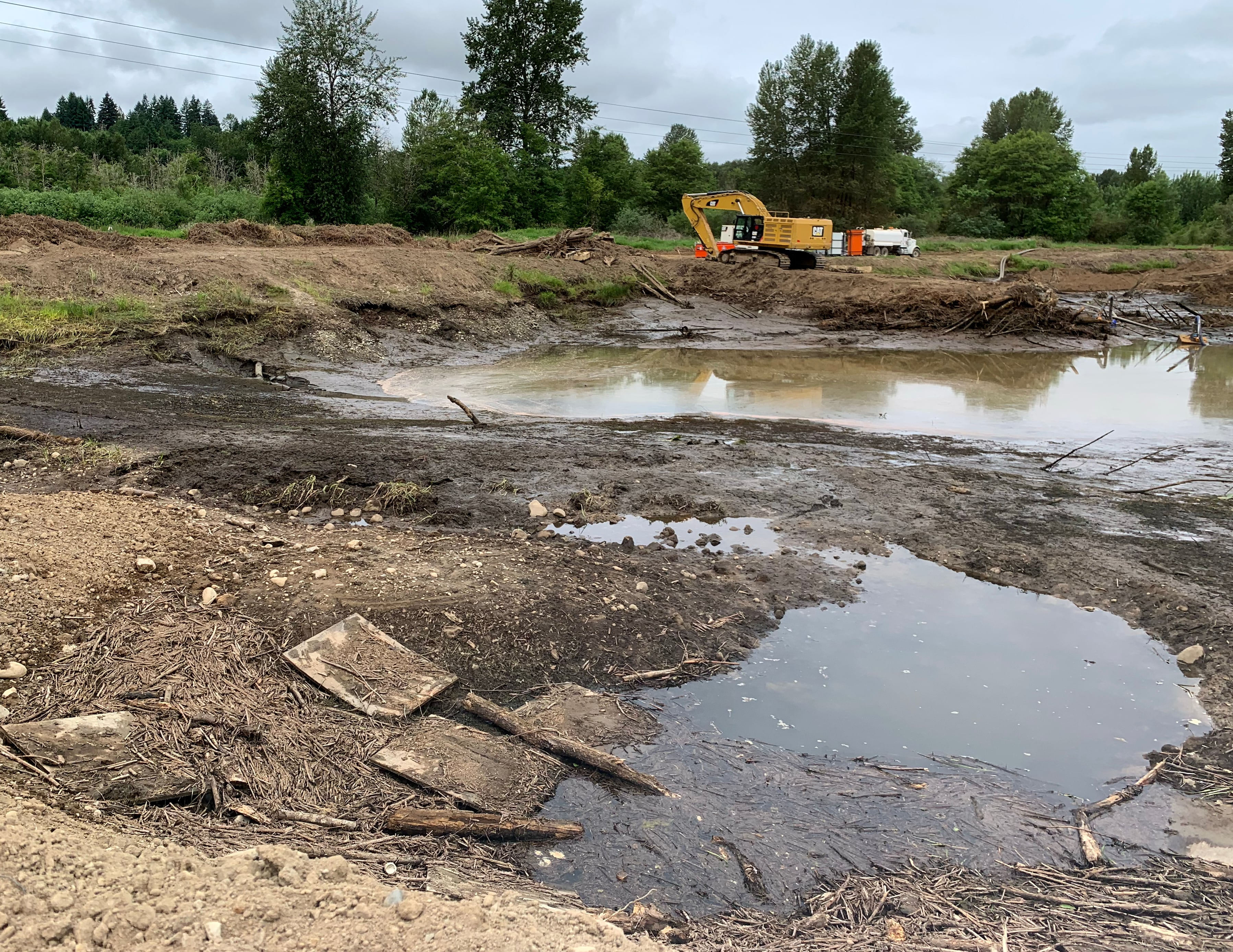
Two-dozen partner organizations including Clark County, the state and local environmental groups are collaborating on the project. If all goes according to plan and the funding remains in place, they’ll turn this sluggish bottleneck in the river into an improved fish habitat with a number of other benefits for humans and the environment.
In early June, excavators and bulldozers from the Battle Ground contractor Tapani shuttled some of the 400,000 cubic yards of earth that will be moved back into the pits. Pumps sucking 330 gallons of water per minute drained nearby gravel pits so they could be filled in with earth. Nearby, a log truck loaded a handful of the 5,000 tree trunks that will be scattered in the river as structures for juvenile fish.
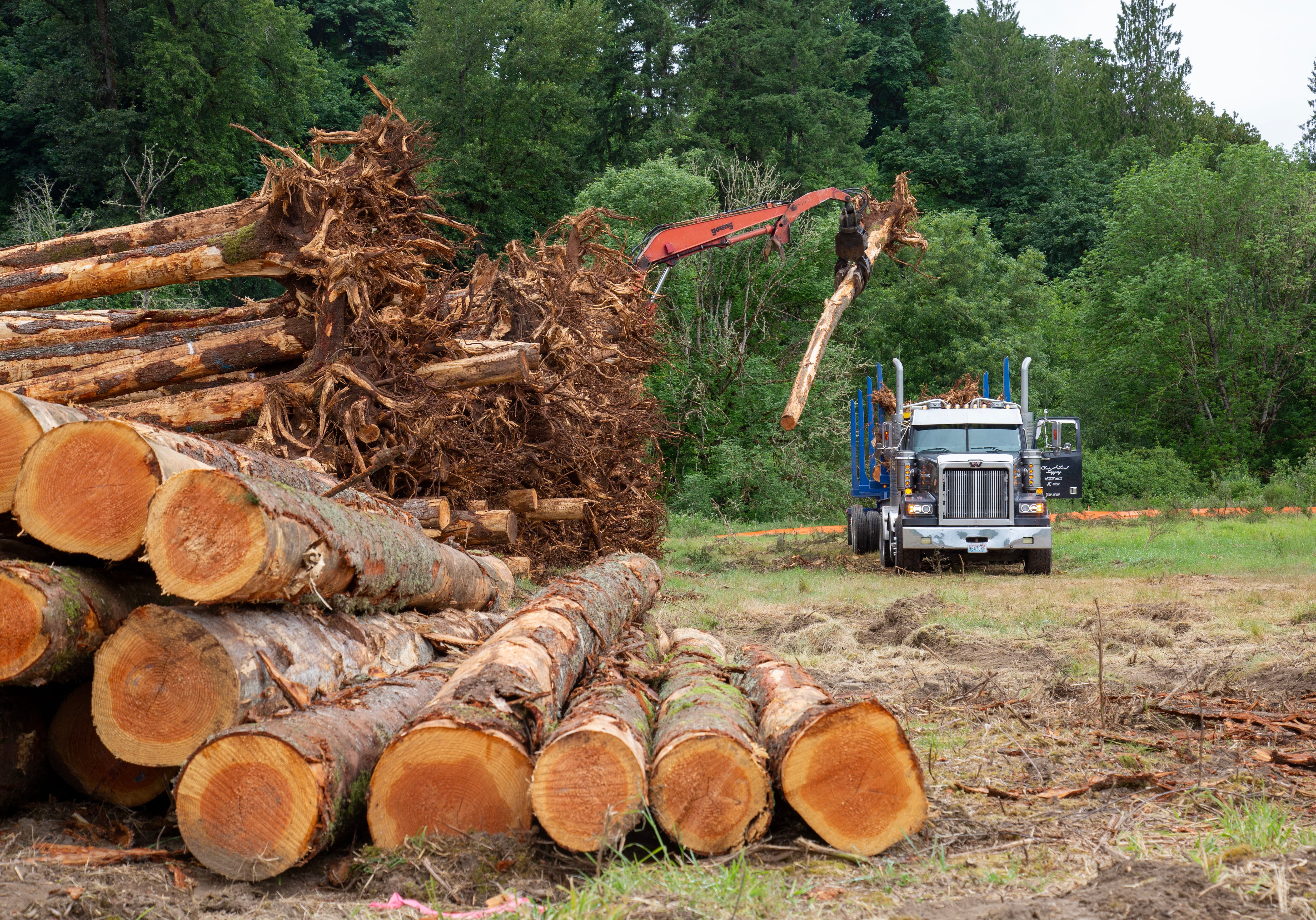
When staff on the project initially snorkeled the river to look for fish, Kolp said it contained just a handful of logs.
“Under every piece of wood, there’s a cloud of juveniles,” he said. “They have nowhere else to go. I think very quickly you’ll see them use those habitats.”
While managers hope to reproduce a more natural environment, they’re trying not to “overengineer” what will be a dynamic system, he said.
The restoration project on the East Fork Lewis River was a high priority for groups working on salmon recovery in Southwest Washington for several reasons. The Ridgefield Pits are located on what Clark County has labeled legacy lands, property that has value as nature habitat or for recreation. There are no dams on the East Fork Lewis River, and in 2014 it was designated a “wild steelhead gene bank” by the Washington Department of Fish and Wildlife. The classification prohibits the release of hatchery fish into the river, since they can compete with wild fish.
Filling the deep gravel pits will also create a wider, shallower river floodplain that slows erosion on the property of nearby landowners and lowers flood risk, according to the Estuary Partnership. The final project will include a rerouted hiking trail along the river.
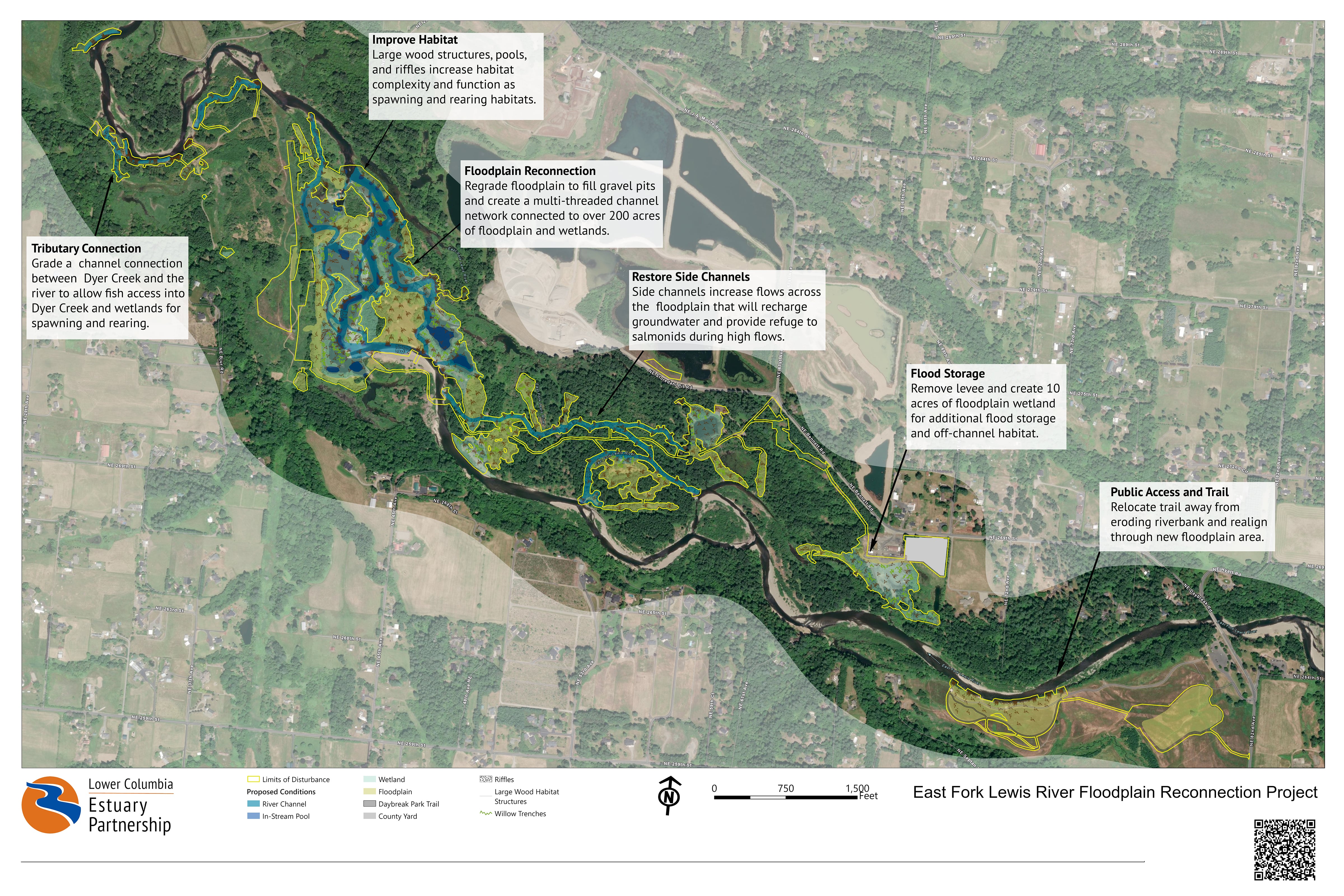
After years of project design and review, construction finally moved forward because of federal funding from the Bipartisan Infrastructure Law and state money from Washington’s Climate Commitment Act, which charges businesses for excess greenhouse gas emissions. The project got $7.6 million in grants from the National Oceanic and Atmospheric Administration. All of that federal money could be targeted for elimination by the Trump administration going forward.
So far, construction has not been interrupted mid-project, and Kolp said they are “proceeding as business as usual.” But there’s concern that eliminating federal funding sources will make large scale restoration projects impossible in the future, according to Jasmine Zimmer-Stucky, public and legislative affairs manager with the Estuary Partnership.
“The idea that we could have a project of this scope and scale that can provide this much community benefit, economic infusion of dollars to the local economy; we want to see more of that in the future and that is what is at risk,” Zimmer-Stucky said.
Ecologists had to do a meticulous fish salvage operation in the weeks before workers dumped the earth and rock into the pits and rerouted the river.
Standing at the edge of one of the gravel pits, principal restoration ecologist Kari Dupler dipped her hand into a blue mesh bucket and pulled out a handful of black, egg-sized mussels.
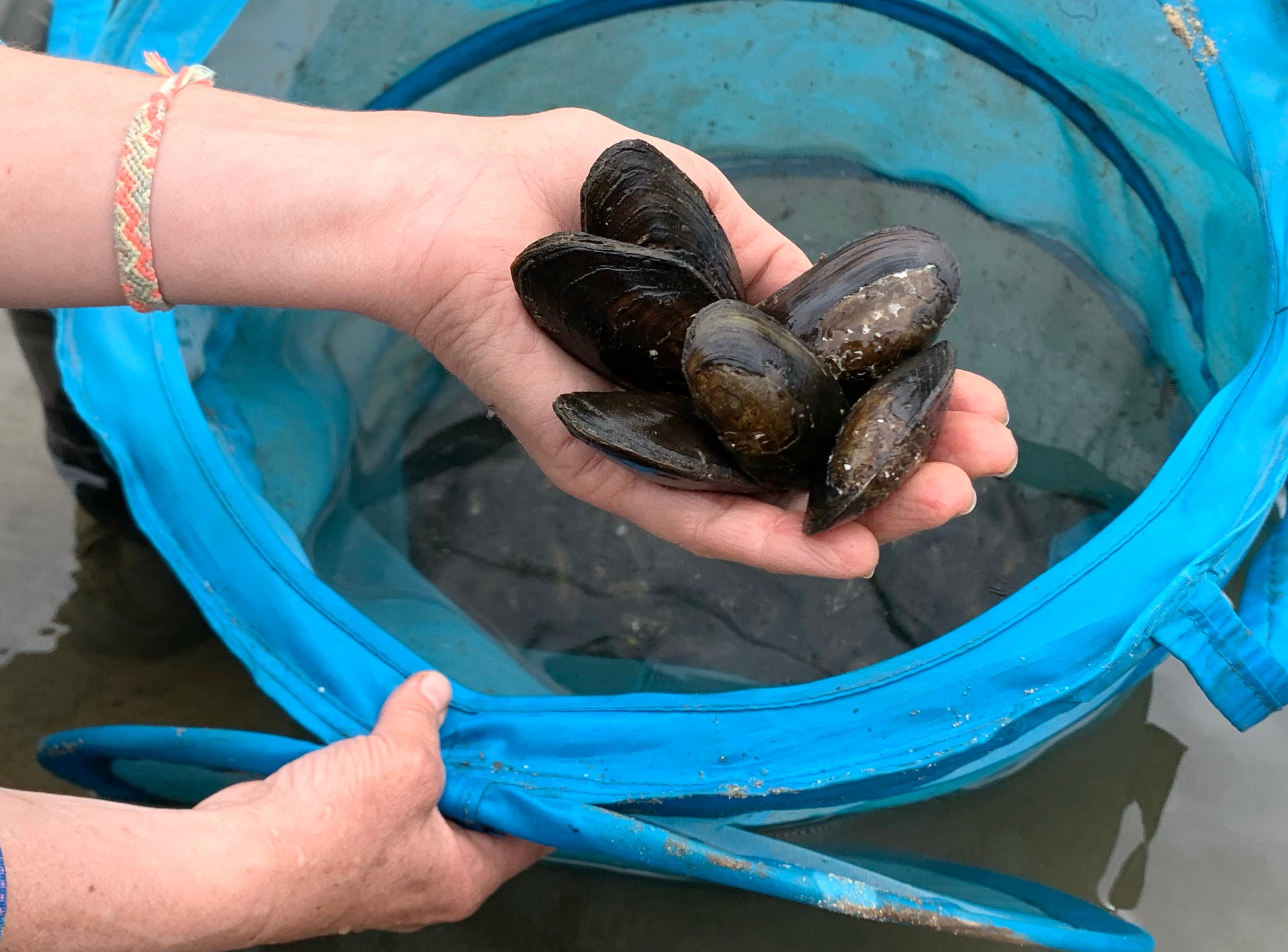
“These mussels generally like to bury themselves down in the sand a little bit,” Dupler said. “Often, the only thing you’ll see sticking up is their siphon, sticking up barely out of the sand.”
A diver swam back and forth in the pool working in transects along the sandy bottom, collecting the native mussels so they could be temporarily relocated during construction.
“They’ve collected probably about 2,000 mussels yesterday alone in this area,” Dupler said.
Ecologists collected thousands more, as well as juvenile salmon and lamprey with the help of staff from the U.S. Fish and Wildlife Service.
Construction on the East Fork Lewis River will take two years, including breaks when fish are migrating through the river. Teams will spend another two years on revegetation work after that.
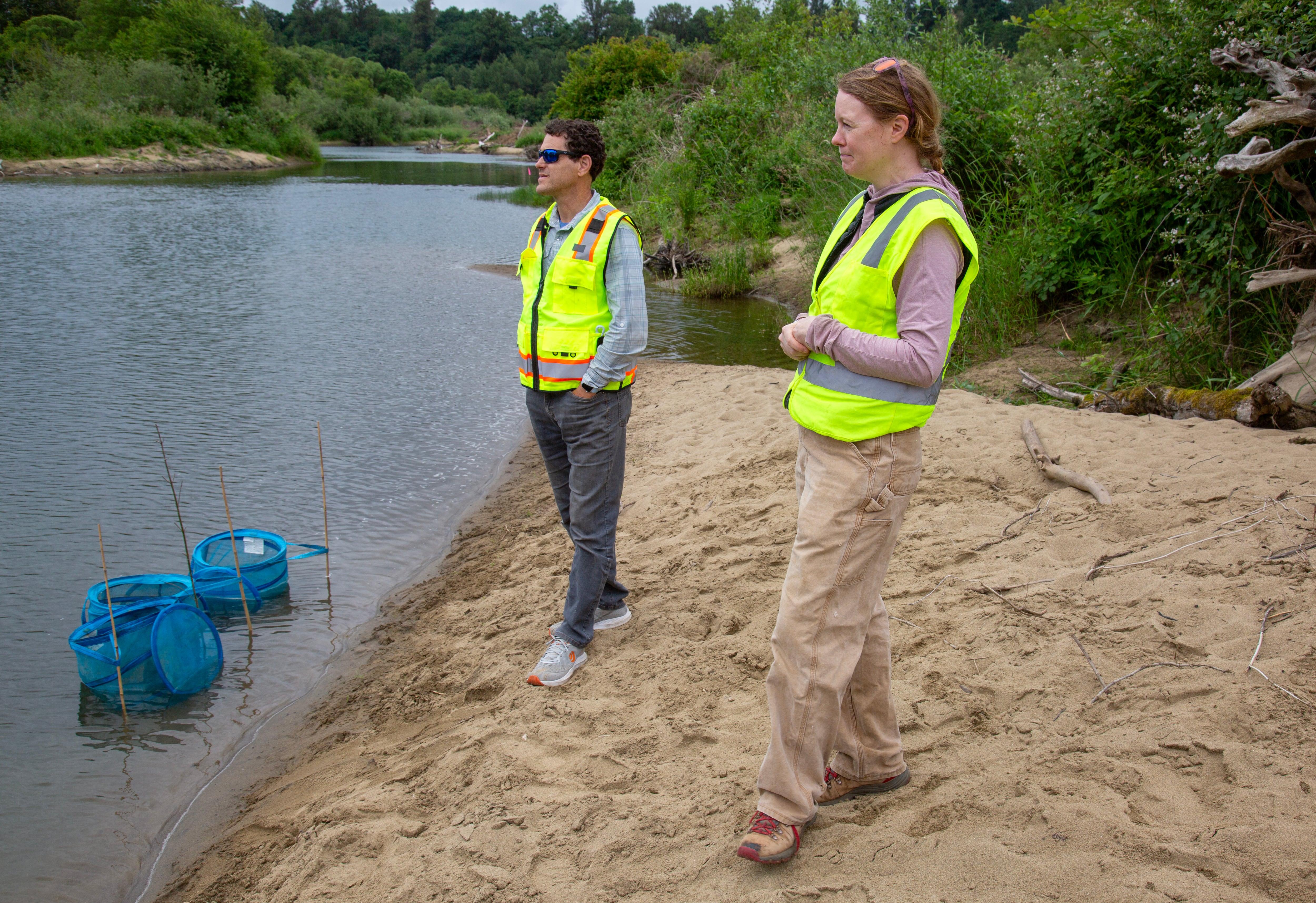
After a tour of the site, Dupler, Zimmer-Stucky and Kolp hopped into a covered all-terrain vehicle and headed back to the Estuary Partnership’s job trailer on a newly carved dirt road. Dump trucks rumbled past. But within a few minutes, Dupler missed her turn-off.
“I feel like things change out here almost every day,” she laughed. “You kind of have to be on your toes.”
Other Related News
07/01/2025
Trent Bray and the Oregon State Beavers had a busy June on the football recruiting trail
07/01/2025
Three Muslim men are suing Oregon prison officials alleging theyve been refused meals that...
07/01/2025
Kylian Mbappe and Real Madrid face Italian side Juventus in the group stage of the 2025 FI...
07/01/2025
Prepare to be AMAZED Jay the Magician Frasier is an award-winning master of sleight-of-ha...
07/01/2025










